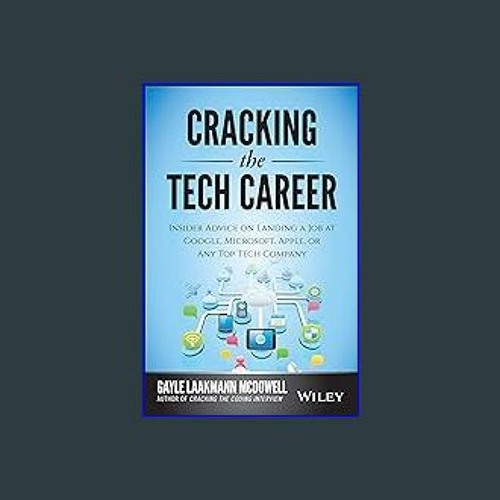Table of Contents
I. Introduction
In the fast-paced and ever-evolving world of technology, embarking on a successful tech career requires a strategic approach, continuous learning, and adaptability. This article serves as a comprehensive guide for those aspiring to crack the tech career code and thrive in the dynamic tech landscape.
II. Preparing for a Tech Career
Educational Background
While formal education provides a foundation, practical skills are equally crucial. Combining a relevant degree with self-directed learning enhances your readiness for the tech industry.
Acquiring Skills and Certifications
Constantly update your skill set with in-demand technologies. Certifications not only validate your expertise but also showcase your commitment to staying current.
III. Building a Strong Portfolio
Personal Projects
Create a portfolio showcasing personal projects. Whether it’s a mobile app or a web development project, a robust portfolio highlights your practical skills and passion for technology.
Open Source Contributions
Engage with the open-source community. Contributing to projects not only demonstrates collaboration skills but also exposes you to real-world coding challenges and best practices.
IV. Navigating the Job Market
Job Search Strategies
Develop a targeted job search strategy. Utilize online job boards, company websites, and professional networking platforms to identify opportunities aligned with your career goals.
Crafting an Impressive Resume
Tailor your resume to highlight key skills, experiences, and achievements. Quantify your impact wherever possible, showcasing tangible results from previous roles or projects.
V. Mastering Technical Interviews
Problem-Solving Skills
Prepare for technical interviews by honing your problem-solving abilities. Practice coding exercises, algorithm challenges, and system design scenarios to build confidence.
Behavioral Interviews
In addition to technical prowess, master behavioral interviews. Showcase your communication skills, teamwork, and adaptability, emphasizing your ability to thrive in a collaborative tech environment.
VI. Networking in the Tech Industry
Online Platforms
Leverage professional networking platforms like LinkedIn and GitHub. Actively participate in discussions, connect with industry professionals, and seek advice from experienced individuals.
Tech Meetups and Events
Attend local and virtual tech meetups, conferences, and events. Networking in person or online can open doors to valuable opportunities, mentorship, and collaborations.
VII. Continuous Learning and Skill Development
Staying Current
The tech industry evolves rapidly. Stay current with industry trends, emerging technologies, and best practices by reading blogs, attending webinars, and participating in online courses.
Embracing New Technologies
Be open to learning new technologies. Embracing emerging trends not only makes you more marketable but also positions you as an innovative and adaptable professional.
VIII. Overcoming Challenges
Imposter Syndrome
Recognize and combat imposter syndrome. Understand that continuous learning is part of the tech journey, and self-doubt is a common hurdle that can be overcome with perseverance.
Work-Life Balance
Maintaining a healthy work-life balance is crucial for long-term success. Set boundaries, prioritize self-care, and make time for personal pursuits to avoid burnout.
IX. Mentoring and Seeking Guidance
Mentoring Relationships
Seek mentorship from experienced professionals. A mentor can provide guidance, share insights, and offer invaluable advice based on their own career experiences.
Online Communities
Engage with online communities and forums. Platforms like Stack Overflow and Reddit can be sources of support, knowledge-sharing, and camaraderie with fellow tech enthusiasts.
X. Advancing in Your Tech Career
Professional Development
Invest in your professional development. Pursue advanced degrees, attend workshops, and seek opportunities for leadership roles to elevate your Teens4technology.org/ trajectory.
Leadership Opportunities
Take on leadership opportunities within your organization or community. Leading projects or teams showcases your ability to drive results and contributes to your professional growth.
XI. Embracing Diversity and Inclusion
Creating Inclusive Workspaces
Promote diversity and inclusion within the tech industry. Encourage an inclusive work culture that values diverse perspectives, backgrounds, and experiences.
Advocating for Diversity
As a tech professional, advocate for diversity and inclusivity. Use your platform to push for equitable opportunities and challenge industry biases.
XII. Case Studies
Success Stories
Explore success stories of tech professionals who overcame challenges and achieved remarkable feats. Learn from their journeys and apply insights to your own career path.
Lessons Learned
Examine case studies that highlight both successes and failures. Extract valuable lessons and principles that can guide your decision-making and career strategies.
XIII. Future-Proofing Your Tech Career
Adapting to Industry Changes
Anticipate industry changes and proactively adapt. A forward-thinking mindset ensures you stay relevant and resilient in the face of evolving technological landscapes.
Developing Transferable Skills
Foster transferable skills such as communication, critical thinking, and adaptability. These skills contribute to your versatility, making you an asset across various tech roles.
XIV. Conclusion
Embarking on a tech career is a journey filled with challenges, triumphs, and continuous growth. By following this comprehensive guide, aspiring tech professionals can navigate the complexities of the industry, crack the code to success, and make a lasting impact in the dynamic world of technology.

